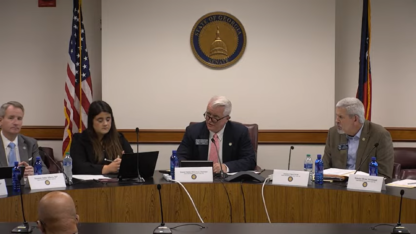Report: More Support Needed For Ga. Pre-K Students Learning English

A study said Georgia’s pre-kindergarten program needs to offer more support for students who are learning English as their second language.
Pixabay
According to the National Institute for Early Education Research’s annual “State of Preschool” report, overall Georgia offers high-quality education programs for 4-year-olds.
However, the study said, Georgia’s pre-kindergarten program needs to offer more support for students who are learning English as their second language.
The state’s pre-K program provides bilingual instruction and has policies that support families of English learners. However, the report noted, there’s no systemwide plan to support English Language Learners, there’s no extra funding for them, and staff aren’t required to receive training to learn how to help ELL students.
“Children who are learning two languages have some of the same issues as other children in their language development, but they have others,” said NIEER co-director Steven Barnett. “And teachers need to understand how those children are learning and developing in terms of language and what they can do to support that.”
Barnett says the preschool years are a critical time for children’s language development. For ELL students, he says, it’s especially important.
“We know that dual-language learners are a group that makes the largest gains from attending high-quality preschool,” he says. “At the same time, they’re at elevated risk of school failure. So, it’s especially important to see that they’re getting the service and that it’s addressing their specific needs.”
The Georgia Department of Early Care and Learning has teamed up with World-class Instructional Design and Assessment (WIDA) to develop education standards for ELL pre-K students. DECAL also offers a summer pre-K transition program for students who are learning English.








